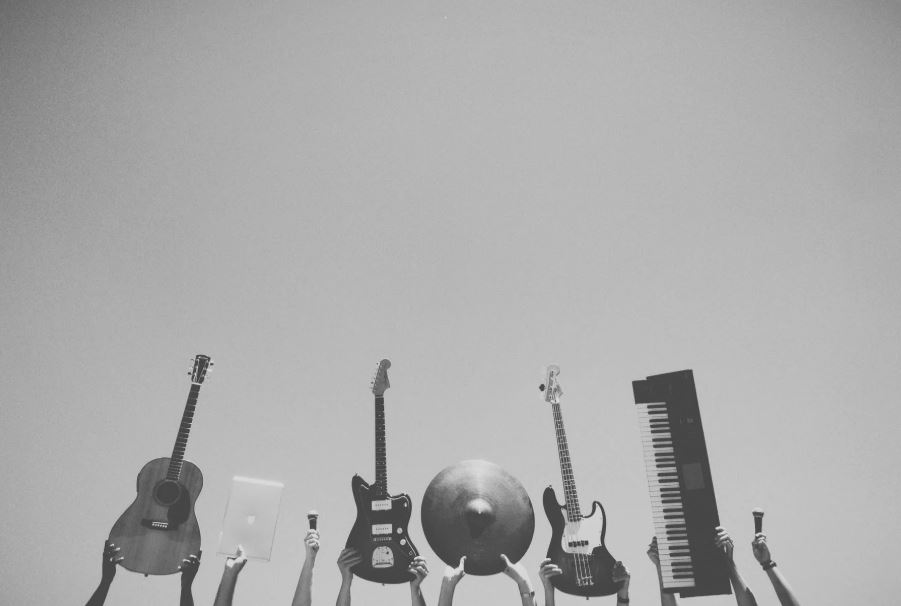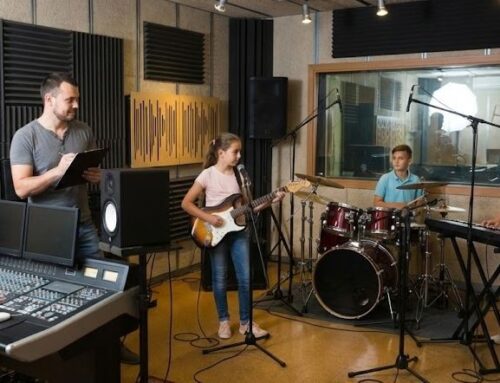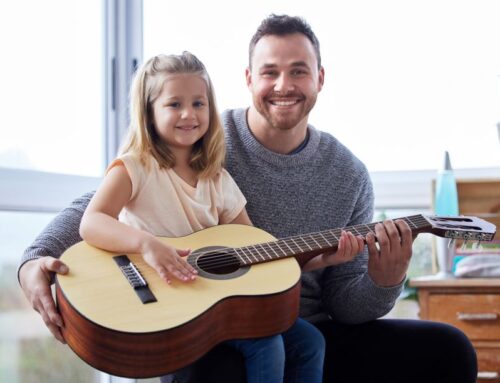When you make the decision to learn a new instrument, taking lessons is the best way to ensure you learn all the tricks you can. But weekly lessons aren’t enough to really master the instrument you’ve chosen… You’ll need to spend some time practicing, too! There are many tips that will help you excel between your scheduled lessons. Read on to see some of our top recommendations, and a couple ways to add some fun into your learning!
At Capstone Music, our focus is learning and loving music together with our students. That means our focus is not on “practicing” but “playing”. We encourage all our students to have fun first! With passion, music lessons will yield exceptional results!
Set realistic practice times every day
When setting aside practice time it’s important to be realistic. Leaving all of your practice time until the day before your lesson isn’t going to result in you learning the piece effectively. Instead, you should carve out a set time each day, even if all you can give is 15-20 minutes. Scheduling bite sized practice time consistently each day will help you learn your music much better than if you try to cram it all into one go.
Focus on your problem areas
When practicing, if you just focus on playing each piece start to finish every time, you’ll likely never actually attack the areas that trip you up. Instead, figure out what parts you struggle with and spend time each day focusing on those specific areas.
Pay attention to your warm up
Running through your piece, whether start to finish or one section at a time, isn’t enough. When starting your practice time make sure you’re including some time at the beginning to warm up. Not only will you be warming up your muscles during this period, you’ll also be helping your brain to memorize the technique used. During warm up make sure you are focusing on the notes you are playing, rather than just running through the motions.
Create a great practice space
The space you choose to spend your time practicing in can easily make a difference in how well it works for you. Ensuring the area is free of distractions like a TV or computer, set to a comfortable temperature and that it has enough light can help you to stay focused on playing music. Tools like a metronome, pencil, any music and technique books you use, water and a mirror can all help you to put your best foot forward when learning your piece. A great practice space can also help you get in the right mindset to learn effectively.
Set Goals
When you have goals to reach for each day, week and month it becomes easier to craft a good practice schedule and have the motivation to stick to it. Whether your goal is to memorize a specific piece, to nail a hard section or get the proper finger positions down, knowing what you’re working towards will give more of a meaning to your practice time.
There’s more to music than just playing the notes
When it comes to learning your instrument, there is more to becoming a musician than just playing it. Understanding the history behind both your musical piece and your instrument can help you really put your all into learning how to play it well.
Record yourself
When you can listen back or re-watch footage of your performance you might pick up mistakes or areas to work on that you missed in the midst of practicing.
When playing music, there’s always room for fun!
When dedicating time to practicing and learning a new instrument, there are many things that can help you excel. But at the end of it all, having fun is really the most important part. If you’re not having fun as you work through challenges and achieve goals, finding the motivation to continue will be difficult.
A couple great ways to incorporate fun include:
Set physical challenges – Adding a physical challenge like playing a section while balancing on one foot or balancing on a small platform can not only feel like a fun distraction, it can also help to build new brain pathways that will make the piece easier to execute when you go back to playing it normally.
Reward yourself – When you successfully complete a practice or achieve a goal you’ve set, reward yourself! Whether it’s buying yourself a new music book or instrument or just splurging on a nice bowl of ice cream, the draw of getting a reward is a great way to maintain motivation.






